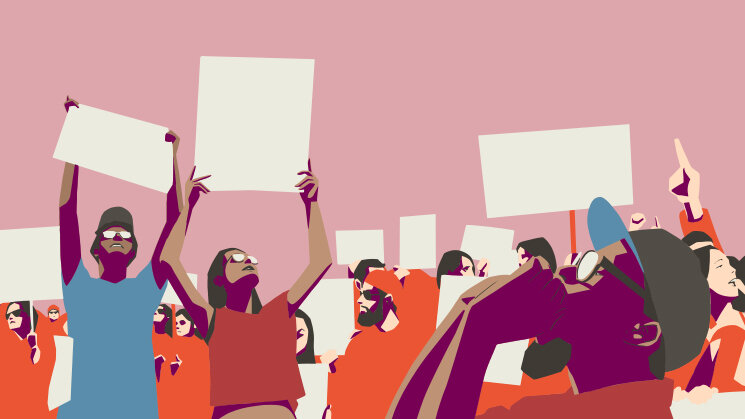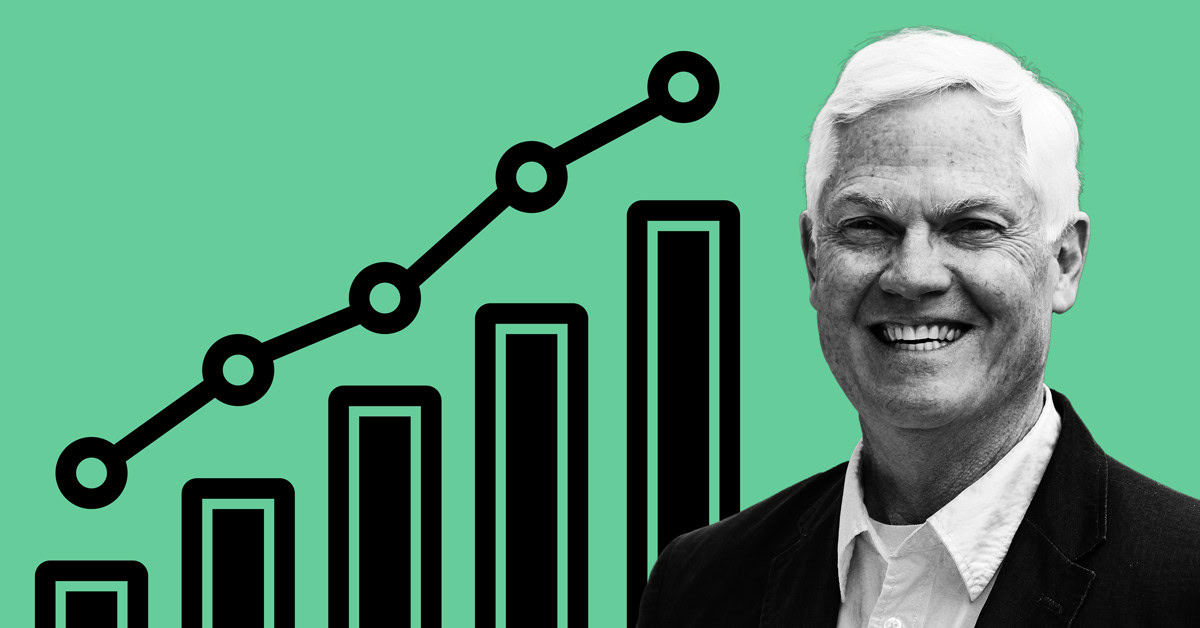We Are in a Great Pivot
Now Is the Time to Put Our Words Into Action

I sense, and sincerely hope, that our nation is finally in the pivot – a great, long, overdue pivot. There is power in the protests across the country, and across the world, that mark this pivot. Black and white people marching together, protesting, and kneeling in silence in small towns like Pennington, New Jersey, and in large cities like London and Berlin; in Boston, a black protestor and a police chief praying together.
What is this moment? It’s a pivot away from denial and ignorance of racial inequality toward cross-racial communication, connection, and cooperation. Sadly, it has taken the horrific murder of George Floyd, and new video evidence in the racially-motivated murder of Ahmaud Aubery, to awaken our outrage at the injustice suffered by Black Americans. Perhaps it has also taken a pandemic to increase our collective sense of our vulnerability and the detrimental effects of social isolation.
The message of the protests here and abroad is about far more than policing. At its core, these protests are a call for action to squarely address systemic racism that results in the economic, social, educational, and healthcare disparities that inflict disproportionate pain and inequity on communities of color.
One example is the disproportionate impact of COVID-19. A recent CDC report revealed “death rates among black/African American persons (92.3 deaths per 100,000 population) and Hispanic/Latino persons (74.3) were substantially higher than that of white (45.2) or Asian (34.5) persons.” The report also identifies underlying causal factors including social, economic, and healthcare disparities that can be addressed in practical ways by people, communities, and organizations to reverse these inequitable outcomes.
In this past week, I have had brutally honest conversations with friends and family, black and white alike, on what needs to happen to ignite legitimate change. Here’s what I am hearing:
Frustration and Anger – White people need to acknowledge that people of color – Black people in particular – live under a general condition of duress caused by racist attitudes, behaviors, and conditions. When the pandemic began, and the shutdown started, a friend and entrepreneur from Trenton told me: “Tom, our community is always in recession.” He reminded me that economic and social marginalization is the norm for the Black community in the city.
Communication – We need to have real, uncomfortable conversations to defuse the anger, heal divisions, and solve these systemic problems.
Accountability – We need to hold ourselves and our leaders accountable to investing in and supporting real change and solutions.
Humility and Hope – We need to acknowledge that we don’t have all the answers, but by committing to finding them, we will advance our mutual bonds of hope toward progress.
Relationships – We need to develop productive social and working relationships across racial lines to promote understanding, cooperation, and true friendships.
Priorities – We need to rethink our personal and collective priorities to remake our society in a way that provides a future hope for our kids and grandkids.
Religious Institutions – We need to step up, walk the talk, and work together to bring greater resources, healing, and hope to vulnerable people.
Citizens and Politics – We all need to get involved more, not just in the voting process, but in coordinated, grassroots efforts at the local level to measurably improve the conditions and opportunities for people in poverty.
So, what should businesses and corporations be doing to address our long-standing racial inequities?
- Be Careful With Your Words – Many businesses and brands are making statements right now in support of change. But they must be very careful to back up their statements with authentic plans for change by committing strategically and financially to supporting sustainable solutions that engage their employees, their supply chain and their customers to address inequities.
- A Deeper Commitment to Career Development – Mentoring and career development programs work. Businesses of all sizes will see real ROI, financial and otherwise, by committing to internships, recruitment, training, and career development geared specifically for people of color.
- Leadership Strategy – Last week, one big brand announced their commitment to change by committing to hiring a Chief of Diversity and Inclusion. I am not sure they realized how this pointed out their gross deficiency. Successful leadership strategies are reflected in diverse leadership teams and boards of directors which remain disproportionately white.
- Get Involved in Strategic Initiatives – At Princeton Partners, we have strategically invested our skills, time, and resources in pro bono initiatives supporting many causes and fruitful programs in the city of Trenton since 1990 in the areas of education, homelessness, the arts, and wellness. But we have done it in partnership with local organizations and by developing personal relationships with leaders and community members. Because Trenton youth have very little access to mentoring and job opportunities we are currently working on new initiatives that will expand these opportunities in more sustainable ways by bringing school administrators, non-profits, businesses, and city government together.
A final word: we cannot afford to lose this moment. As we become more conscious about the experiences of people of color, it is not enough to reach a place of intellectual understanding — change must be forged through action. In his famous book entitled Strength to Love, Martin Luther King Jr. wrote, “The ultimate measure of a man is not where he stands in moments of comfort and convenience, but where he stands at times of challenge and controversy.” These words are as timely as ever. Non-black Americans cannot continue to sit on the sidelines as Black people fight for their right to live freely in this country.





